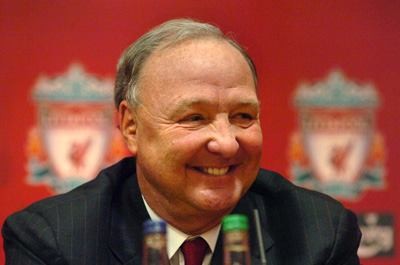not sure what to feel
As I sit
high above wall street
doing this huge deal.
When I moved to California to start my consulting company, one of my first projects was to launch a new format in San Antonio called “Class-FM”
Then when the ratings exploded, so did my consultancy.
Then, before we knew it, not only were we consulting radio stations all over North America, but we also owned radio stations in Portland and Indianapolis and were trying to buy one in Chicago.
He wanted me to fly to Dallas to meet with Tom Hicks, who owned 7 Up, Dr. Pepper, The Texas Rangers, and a European soccer team. (Tom Hicks pictured on top)
He explained that his younger brother Steve who was also in broadcasting, wanted Tom to get involved, but up until now, Tom said, “Radio just wasn’t big enough.”
We’d be starting with seven markets where Reg and I would be in charge of getting more ratings which would enable us to buy more radio stations.
As the merger was coming together and my marriage was falling apart, I moved to Austin to fire up the Hicks’ flagship station, Key 103.
First, I brought in Reid Reker as the ringmaster and then hired some nasty major leaguers like The Magic Christian, Jeff McKee, Mike Donahue, Mike Keneally, and Peter Jennings sound-a-like Bill Taylor.
As wonderful as that news was, it didn’t compare to the rating party the Hicks threw for the whole staff in Las Vegas.
When Tom kicked off the presentation, I could tell that this wasn’t his first rodeo on Wallstreet.
He told the investors that a new day had dawned in Broadcasting, and now for the first time, outsiders like us would be allowed to invest in radio.
“The man you’re about to meet is a radio genius and he’s going to make us all filthy rich.”
While Tom was explaining the financial part, I was gazing out at the New York skyline and wondering just what the hell I was doing here until I heard Tom say, “Now it’s time for you to meet the star of Capstar, George Johns.”
Once there, I took a moment to look out at the sea of blue pinstriped suits who were staring back at me with total disinterest which pissed me off. Now I was ready!
I bid them all a good morning and began with, “As Mr. Hicks said, I’m a radio guy, and what I know about radio is that 97% of the American population uses it every day.
Hell, I said, “5% of Americans are legally deaf, so even some of them are listening; how strong is that?”
“However,” I continued, “As big as radio is, very few people understand how it works.”
With that, the room exploded with laughter, and the demise of radio began.
Chapter XXXV (Are You Ready?) 2/11/23 (35)
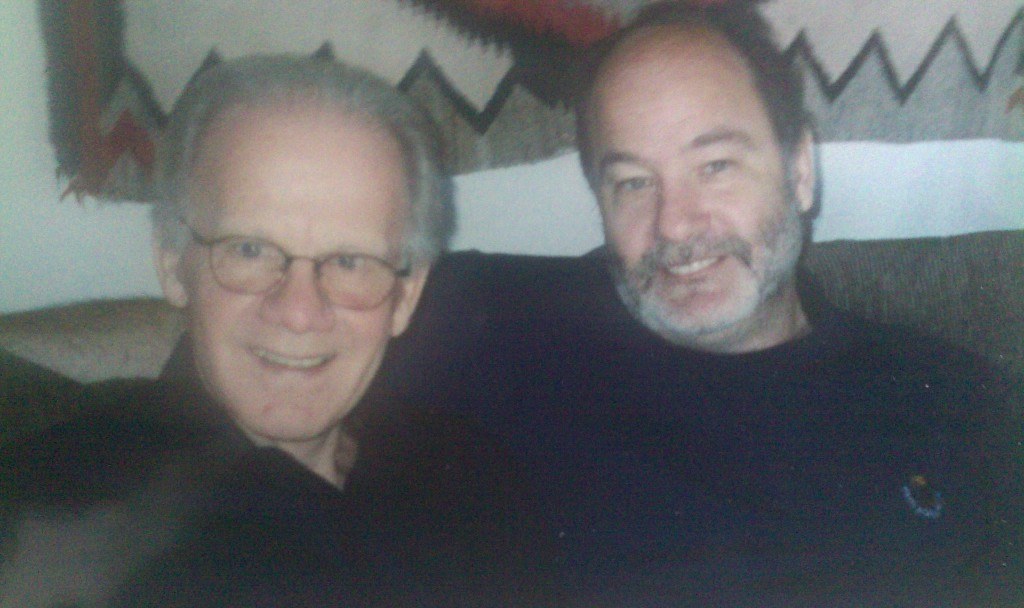
 Partnered with my brother
Partnered with my brotherand CFO Bill Yde
Bill raised a lot
of money
but none of it
was free.
We bought
K103 in Portland
which became #1
Shoulda stopped then
cuz we already
had it done.
As I said in the previous chapter (Good Time Charlie), when our new format, “Class,” ballooned up to 46 radio stations, we were not at all prepared.
When we launched the new format in San Antonio, I just hoped it would become successful enough to survive.
Back in those days, whenever I was asked why I thought KVIL became so successful, my answer’s always been, “They did everything with class!”
So, of course, the new format in San Antonio had to be called “Class.” Duh!
The only thing different about “Class” in San Antonio from its predecessors was it became successful a lot quicker.
KVIL took two years, WRMF took a year, but “Class did it in six months. Were we prepared for its success? Hell no!
When I left Fairbanks I was taking a big chance so when “Class” became successful, I needed to get the word out quickly.
Years ago, Jim Hilliard told me that a person is usually the bext answer to most questions.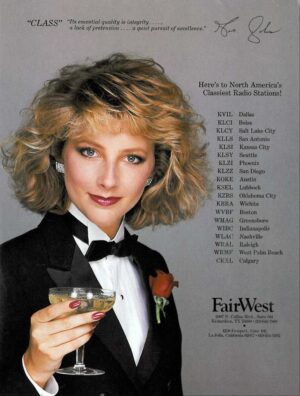
The only person I knew that was great at spreading good news because he knew everybody was Jim West in Dallas.
Unfortunately, Jim was so good that before you could even catch your breath, we were in 46 markets. Great right? Not!
The way Jim sold the format was to include a visit from me every month for a couple of days. Do the math!
Finally, I said, “Jim, you’ve gotta stop selling; we’re oversold.” Jim responded, “It’s not in my nature to turn down certified checks, so get some help.”
Jim, who also ran Fairwest, had some folks who worked for him, so we tried sending them.
However, none of their visits counted; they all wanted to know when that Johns guy was coming.
My solution was to talk my Brother Reg into becoming my partner.
Not only was he a great programming/promotion guy (He kicked CHUM’s ass in Toronto), but he understood the philosophy. Oh, and he also had that Johns name. (Reg and me pictured on top)
Still scrambling because you’re never prepared for success, I decided to do something that I came up with while working my way across Canada.
In my early days of radio, I moved around a lot and soon grew weary of having to start over at every new radio station I was hired at.
What I came up with was a road crew of sorts.
The guys I chose not only knew what to do, but they could also explain to the new guys why we did it and then go on air and show them.
In those days, the guys I trusted to be by my side were Gary Russell, Roger Klein, Keith Elshaw, Doc Harris, and Woody Cooper.
Not only were they a formidable crew, but they were fearless.
Using the road crew in Canada as a model, Reg and I put together a crew that consisted of Reid Reker, Bill Gardner, Bruce Buchanon, Cat Simon, Mike Donahue, Tony Mann, Jason Williams, the Magic Christian, and Bill Baily.
Pretty soon, a few of these guys started to create their own road crews, and it was kinda like we all belonged to this private club.
The way it worked was we’d bring new talent we found to San Antonio or San Diego, where we’d teach them the philosophy and then put them on the air on weekends to practice.
Then whenever we’d get a new client, we’d send a couple of them to the market to get it rolling.
My good friend Ivan Braiker best described the Class philosophy when answering a question from his owners.
He was asked why their station, which ran the same elements as all the Class stations, didn’t sound anything like a Class station.
Ivan said to them, “It’s because your station is also doing things a Class station would never do.
The Class format is a 24-hour-a-day philosophy, and most of their sound comes from what they’re not doing.”
Things were going so well then that a financial guy from my old employer Fairbanks Broadcasting named Bill Yde, talked us into buying the company that Jim West ran, Fairwest.
As Bill explained, “If you guys ever want to own your radio stations, you’ll need to own some brick and mortar first.
KKCW not only became K103, but it also became the #1 station in Portland and stayed there for over 35 years.
The bad news? Jim West never showed for the closing.
So when the smoke cleared, we’d gone from owning 51% to 49%, and of course, the money guys now thought they knew more about radio than we did.
Chapter XXXIV (Good Time Charlie) 2/10/23 (34)
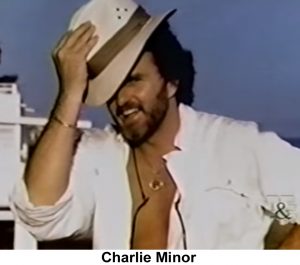
So we created a program
called “Pillow Talk.”
which did
quite well
Now, all we needed
was an album
that maybe we could sell.
Surprisingly, as long as I’ve been in broadcasting, I’ve only known four record guys, Doug Chappell, Al Mair, Jerry Brenner, and Charlie Minor.
Unfortunately, all of them are already gone, but if they could, they’d agree that “Good Time Charlie” was the most colorful of all.
Tragically, on March 19th, 1995, Charlie was gunned down by a jealous stripper named Suzette McClure, who lay in wait for him at his Malibu home.
When I moved to California to start a new consulting company and talked my brother Reg into joining me, we had no idea how successful our new format would become.
Before long, the “Class/Classy” format was on in over forty-six markets, but it was a dawn-to-dusk format, so trying to get ratings at night, we created a show called “Pillow Talk.”
Pillow Talk featured love songs with some requests and dedications thrown in, which Delilah took to a new level when she added relationship advice.
The show was doing great, and at some point, because “oldies” albums with radio station call letters on them were popular, we thought maybe a “Love Songs” album would be a big seller.
The plan was to package it up with the various call letters of our clients printed on it and then have places like Publix and Safeway sell it.
The radio station would assemble a package of spots and promos for the participating clients, and we’d all share in the album sales.
Now that we had a plan, all we needed was the music, and there was only one guy to talk to, Charlie Minor, V/P of A&M Records. Charlie was a good friend of mine, and he would spend the occasional weekend at my place in Coronado, and I’d return the favor by staying at his home in Beverly Hills.
The problem with doing a sleepover at Charlie’s was that he liked to socialize until the wee hours, but he’d still be the first one up every morning.
He was what you would call a dream friend; hey, who else would always have a spare ticket with your name on it for sold-out events?
Charlie taught Candis everything she needed to know about the record business, which led to her becoming the Licensing Director of Warner Brothers, Electra, & Atlantic Records.
Candis loved working for Charlie, and when the company tried to accuse him of sexual harassment to get out of their contract, Candis had his back.
When the lawyers accusing charlie tried to get her involved, she threw them out of her office.
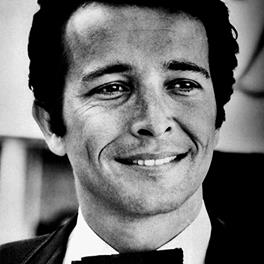 Anyway, back to the Love Songs Album, when I told Charlie about it, he set up a meeting with his boss, Herb Alpert. (Herb pictured above)
Anyway, back to the Love Songs Album, when I told Charlie about it, he set up a meeting with his boss, Herb Alpert. (Herb pictured above)
I was very stoked about meeting with Herb because A&M Records was the perfect label because they had all the love songs we needed.
I was delighted to discover when I arrived at the A&M studios for the meeting that it used to be Charlie Chaplin’s movie lot. (Being from Canada, anything Hollywood makes me “Star Flinch.”)
I’d arrived a little early, so I got to hang out in Charlie’s office and watch him work the phones.
I’d been on the other end of those calls and always thought we were having a casual conversation because he sounded like he had all the time in the world.
However, on this end, watching him was exhausting.
He was having at least seven phone conversations at the same time while yelling at one of his assistants to get him someone else on the phone. After a half-hour of it, I needed a nap.
At noon, Charlie and I walked across the lot to meet with the ‘A’ of A&M Records, and I couldn’t help but wish that my father was still alive.
He’d have been proud that his son was meeting with one of his all-time favorite artists. Barely a day went by in Transcona that the Tijuana Brass wasn’t blasting out of his stereo system.
Herb’s office was in a Quonset hut on the far side of the lot, but once inside, you felt like you’d just entered Camelot.
The floors were all stone, as were the walls with what looked like real torches hanging from them. The dark wooden furniture was massive, and an immense black steel chandelier hung from the ceiling.
When we finally got to Herb’s inner office, I couldn’t help but notice that his desk appeared to have been carved out with an ax and was so large that it could have easily accommodated the Knights Of The Round Table.
After the introductions and a little small talk, Charlie told Herb that I had an interesting concept that was worth his hearing.
Herb was not only charming and attentive, but he also asked all the right questions.
The meeting lasted about an hour, and as we walked back to Charlie’s office, I asked him how he thought it went.
He said he could tell that Herb liked me, so the meeting went as well as it could.
When I asked him what would happen next, Charlie said, “Absolutely nothing.”
George, what you want Herb to do takes an enormous amount of work. He has to research who wrote the songs, who published them, who performed them, and then try to get them all to sign off on your project.
It’s much easier and more fun,” he continued, “For him to walk across the lot to one of our recording studios and record a new band.”
Then he said, “George, this is the only industry in the world where the owners are wrong nine times out of ten, but they’re
all still billionaires anyway.”
XXXIII (Reunited We Stand) 2/10/23. (32)
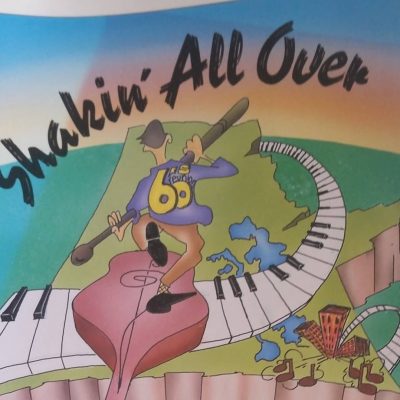
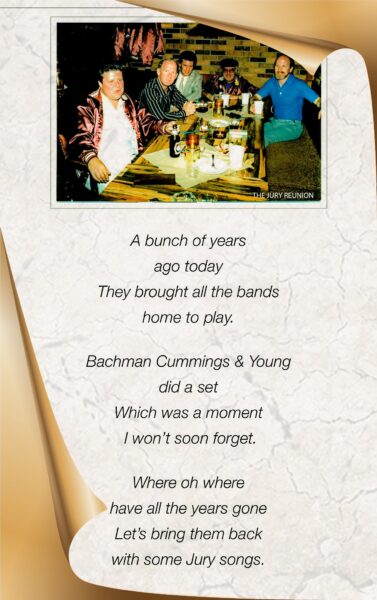
Things were going well; the ratings for “Class FM” exploded, which meant my client list was growing, so I partnered up with my brother Reg to try and keep up with all the action.
Even though I was too busy to do so, some twenty years after leaving, The Jury, I returned to Winnipeg for a band reunion.
John’s book was so popular that they reunited those bands for a charity concert at the Winnipeg Convention Center.
Not only hadn’t I touched my guitar in twenty years, but I also hadn’t seen any of my bandmates, so I was looking forward to hanging out with them.
It is said that life is measured by its breathless moments, and as my plane began its descent to Winnipeg over the Golden Boy, I remembered that I had more than my fair share of them in my band days.
When I was asked by customs what the purpose of my visit was, and I answered, ” I’m here for a band reunion,” they all broke into big grins and said, “Welcome home, Mr. Johns; the whole town is very buzzed about the show, and we’ll be there.”
Rolly, it turned out, wasn’t excited about the reunion because, I guess, after I left the band, there’d been more than a few incidents, and apparently, the scars hadn’t healed.
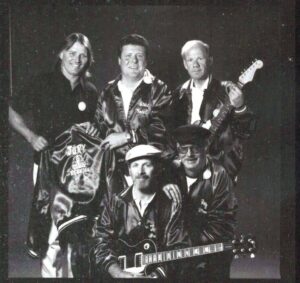
The backstage area was like a scene from a rock movie, Neil Young was hugging his old bandmates from the Squires, Randy Bachman was chatting with Chad Allen about the early days of The Guess Who, and Burton Cummings was laughing it up with his old band, the Devrons.
When I met John Einarson, whose book had inspired the reunion, he surprised me by saying that he’d bought The Jury’s first record, “Until You Do,” just so he could learn to play Terry’s guitar intro.
You haven’t lived until you see Bachman Turner Cummings & Young do a 20-minute version of “American Woman.”
Standing there watching Randy and Neil trading guitar licks made me glad I’d put my guitar down so I wouldn’t have to embarrass myself tonight. Unfortunately, as it turned out, that wasn’t the case.
Suddenly, from out of nowhere, Randy and Burton strap a Strat on me, and as they push me out onto the stage, they yell, “It’s not the Jury if George Johns ain’t with them.”
Standing there, petrified, I told a stagehand that if he valued his life, he would leave me unplugged.
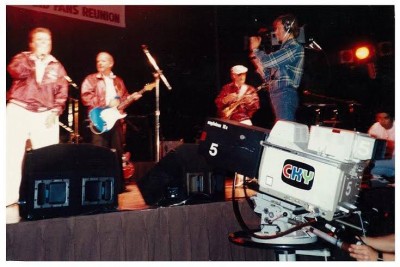 When Terry kicked into the intro of “Until You Do,” the years melted away, and just like that, it all came back.
When Terry kicked into the intro of “Until You Do,” the years melted away, and just like that, it all came back.
Mark Knopfler got it right when he sang “Guitar George Knows All The Chords,” because I sure did that night.
Some thirty tears before I was unplugged the night I’d begun my musical career, and now it had just ended the same way. Perfect!
Chapter XXXI (I Just Wanna Celebrate.) 2/10/23
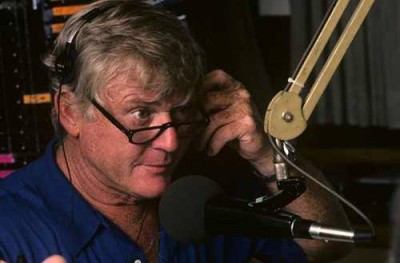
Loved living
in San Diego
Hey, what’s not to like
when you’re doing
good radio
Had an ops guy
by the name of Reid Reker
McCoy had pre-hipped me
that he was a keeper.
When I moved to San Diego to work for the Shadeks, things were going pretty well, but the scary part was we were doing two brand-new formats.
In San Antonio, we were doing “Class,” and in San Diego, “The Radio Magazine.”
I also believed the only way to have a big morning show was to hire somebody famous or make who you have famous.
Luckily, Martin Milner, who starred in not only a couple of big TV series, Route 66 and Adam-12 but also a bunch of movies, lived in San Diego and wanted to give radio a shot, so we had the fame part covered. (Marty is pictured on top)
Even though Marty had never done radio before, he was up for the challenge.
Thankfully, he was a quick study, and because he didn’t disagree with anything, we moved along very quickly.
The media queens loved him, so we got on a few radio buys before he was even on the air.
In fact, things had gone so well that I was considering hiring nothing but movie stars in the future.
When I arrived, he was in a panic. “George,” he said, “Not only can’t anybody find my script, but they don’t even know what I’m talking about. Did you bring it?”

Celebrated my 40th
in the Polo Lounge
a lot of my friends
all came around.
Even my wife, Lana,
decided to show
But her moving to Cali
was still a no-go.
After launching “Class FM” in San Antonio and Martin Milner in San Diego, it was time to party “Dude.”
It was my 40th birthday, and what better place to celebrate that I’d finally made it to California than at the famous Polo Lounge in the Beverly Hills Hotel? Hey, if it was good enough for Bogey and Bacall, it worked for me.
When I invited all my friends to join me for a cocktail in the Polo Lounge, the first person to respond was my old friend Charlie Minor from A&M Records.
Charlie wanted to know what arrangements I’d made with the Polo Lounge, and when I said that it was an informal affair, he said, “George, Saturday night is when the celebrities like to hang out there, none of your friends will be able to get in, man!”
When I showed up that morning, sure enough, Charlie was there waiting for me.
Then, when he introduced me to the Matre D’ and I slipped him the fifty, they both guaranteed my birthday would be special.
How’s that tune go again, “Oh, What A Night.”
My party couldn’t have gone any better, red velvet ropes led to my banquet-like table, and whenever one of my friends would show up, the Maitre D’ would loudly announce their name as being for Mr. Johns’ table.
Some folks from around the country who couldn’t make it called, and each time one did, the Maitre D’ would loudly announce, “Phone call for Mr. Johns.”
One of those phone calls was from Russ Morley, who, upon hearing that Lana was with me, said, “Oh shit!” and hung up.
Hmmmmmm, I thought until I was distracted by, “Singing telegram for Mr. Johns.”
The next thing I knew, a beautiful young lady was sitting on my lap singing happy birthday to me who couldn’t sing, and I remember thinking, you’d expect in Hollywood they’d to be the best. Hmmmmmmmmmm!
As the night progressed and the announcements from the Maitre D’ continued, it wasn’t long before the celebrities at the bar were craning their necks to see who the hell I was.
It was a stellar night for a kid from Transcona who had sat around a shop class with his buddies years ago, “California Dreamin’.”
I wish Easter, Bomba, Ringach, and Shift could have joined me to raise a glass and celebrate that one of us finally made it to Surf City.


